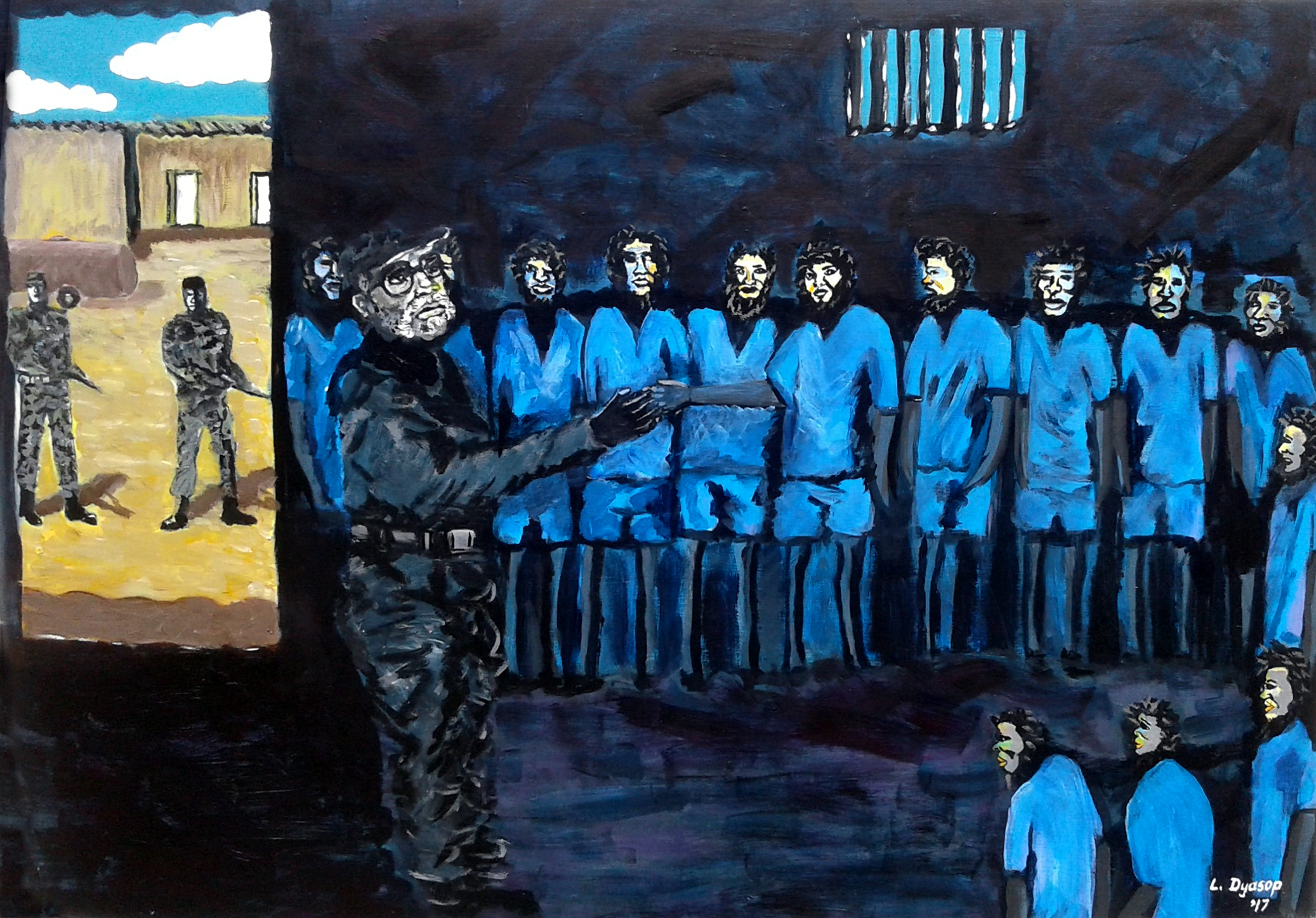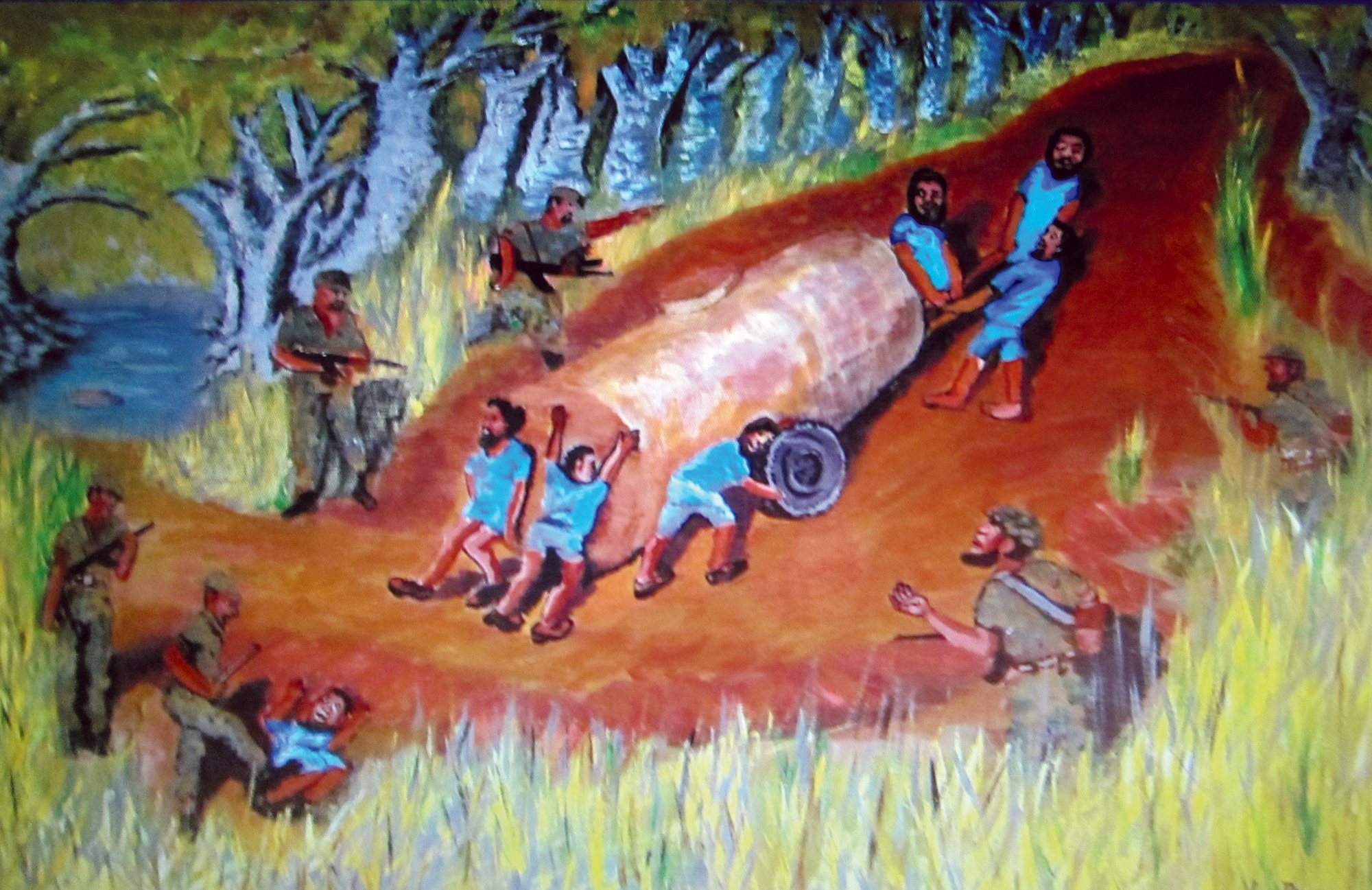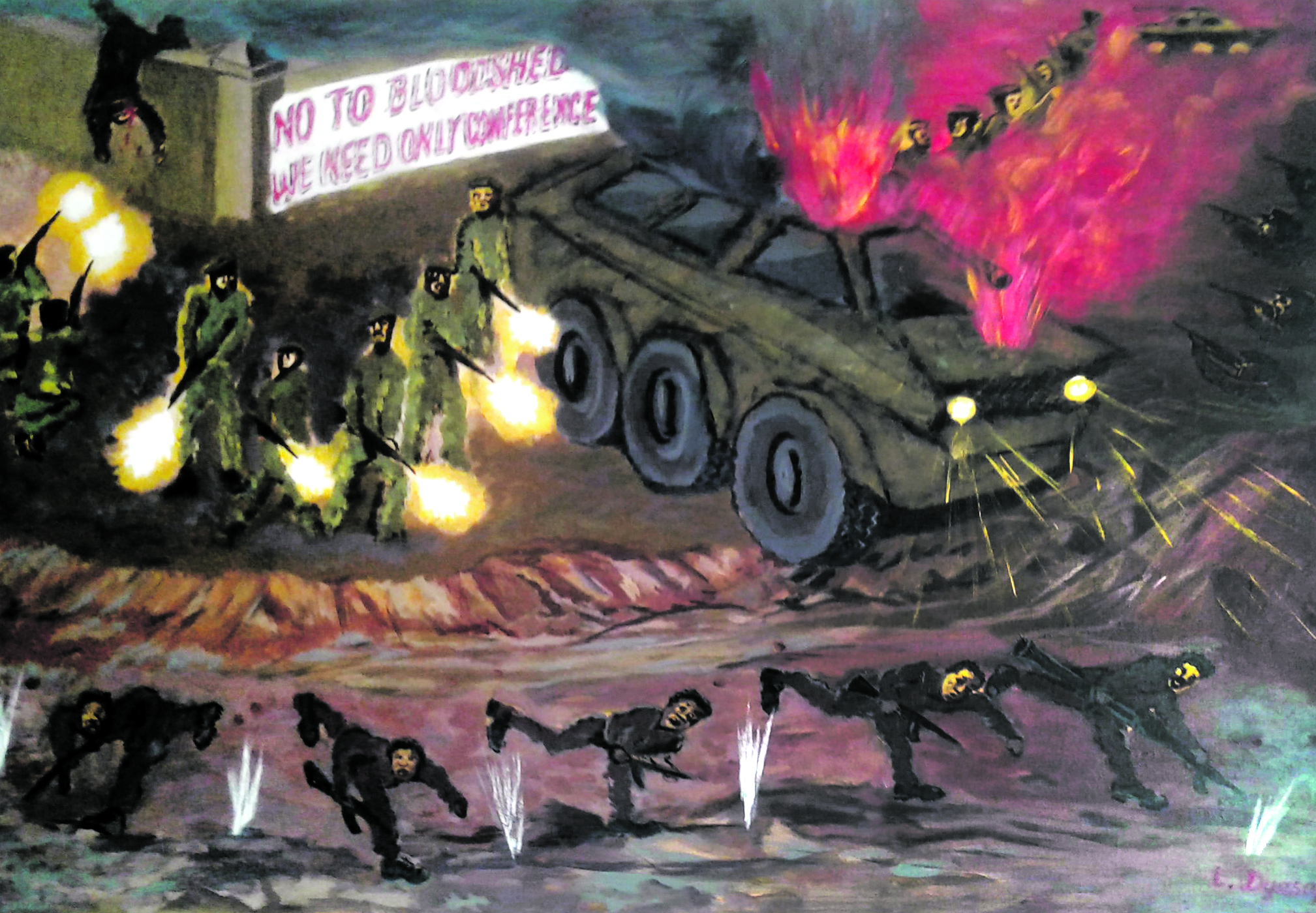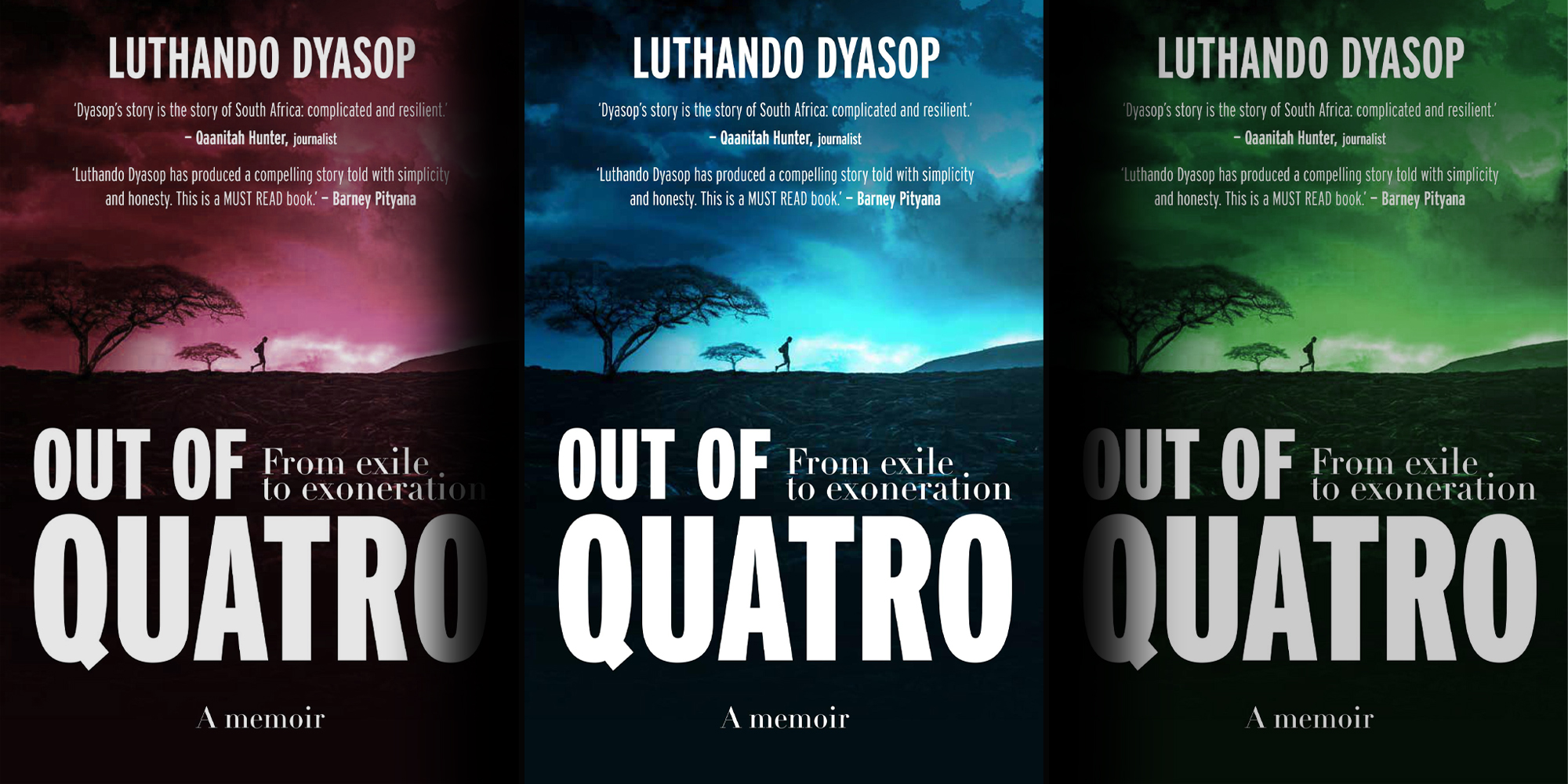First published in the Daily Maverick 168 weekly newspaper.
CHAPTER 11
We called the place we were in “camp”, though it was a normal house with three bedrooms where we slept, as well as a kitchen and a large, open living area where we often held meetings.
Not many people were living there as the arrangement was that once one was declared a refugee under the auspices of the United Nations, one should make space for new arrivals. The interior of the “camp” belied the conventional exterior of the house as it resembled a gallery with pictures and posters hanging on all the walls.
For the first time, I saw the banned photos of our leaders, like the then president of the ANC and commander-in-chief of MK, OR Tambo, as well as Nelson Mandela, Walter Sisulu and Elias Motsoaledi; the poster of all the Rivonia Trialists; the Freedom Charter; a photo of Solomon Mahlangu who was hanged in 1979.
The colours of the ANC – black, green and gold – adorned every available space. There were shelves with books, booklets, pamphlets and journals like the ANC’s Sechaba and the South African Communist Party’s (SACP’s) African Communist as well as World Marxist Review.
 OR Tambo in Quatro. (Artwork by Luthando Dyasop)
OR Tambo in Quatro. (Artwork by Luthando Dyasop)
This impressive scenario was enough for any new arrival to be inspired to learn more about our struggle. The word “comrade” preceding everyone’s name created a benign atmosphere. When we spontaneously broke into the revolutionary songs I had heard on Radio Freedom back home, I felt spiritually revived and completely at home with my ANC family.
Political discussions were held twice a week and conducted by a visiting “senior” comrade, or by one friendly resident I came to know as Tito Mboweni.
Now, here was a guy who was always happy to help anyone with his favourite things – politics and cooking. Among many things, he taught me how to prepare porridge since, according to the camp chores, each and every one of us had their turn to cook in groups of two. A homebody to some extent, Tito was the embodiment of the camp, with a certain amount of responsibility even though he was relatively new in exile.
On Monday 17 November I embarked on the official process of being declared a refugee because I had not undergone the whole procedure while I was at Qacha’s Nek.
So, on 1 December 1980, I received the initial sum of R30 from the UN, which was issued by the offices of the Lesotho Department of the Interior. In the ensuing months it would be R20.
It was at the Interior Department offices where my first encounters with MK-trained guerrillas took place, but the three who frequented the “camp” used combat names: Ten-Ten, Walk Tall and Afrika.
When outside Lesotho, Afrika had another nom de guerre – Oscar Sizwe – but his real name was Sipho Malcolm Phungulwa.
The trio’s visits boosted our morale and, merely because of their presence, we felt that we were already close to victory. Their confidence was infectious and impressive.
Little did I know at that time how deeply Sipho Phungulwa’s fate and mine would later be intertwined. What I did know back then was that he was the personal bodyguard of Chris Hani, the most powerful ANC member in Lesotho.
 Amaswaiman. (Artwork by Luthando Dyasop)
Amaswaiman. (Artwork by Luthando Dyasop)
In January 1981, I settled at Lower Seoli with Bowen Hans, “Ntakana” May and “Banana” Thomas, all from Mdantsane, outside East London. It was the insufficient money for rent and groceries that led us to stay together. It was then that Sipho Phungulwa’s visits became regular. In actual fact, it was because he was in love with Ntakana’s sister, Noxolo May, who had arrived in exile earlier in 1980.
By that time Noxolo was heavily pregnant with Sipho’s child. She and her friend Momo rented a room not far from us. When she ultimately gave birth to a baby girl, Nomawethu, early in 1981, we all joined in welcoming the new arrival to the world of exile.
She was a special gift to us all and had the potential to be the catalyst that might knit the May and Phungulwa families together.
We were not the only ones facing a shortage of money; there were many others like us all around Maseru’s locations.
We met for our regular political discussions at each other’s places and could see for ourselves that lack of food was a common problem. Some would approach the “senior comrades” for assistance, just to sustain us till the end of the month. It never crossed our minds [to ask] why the “senior comrades”, unlike us, always had plenty.
One of these was Chris Hani. Some untrained comrades like us were accommodated in the house Hani rented. Fortunately for them, they didn’t pay rent or buy groceries. They claimed they had come into exile through contacts, unlike us. The UN money they received could be spent any way they liked. We regarded this with humour, told each other that we were not yet trusted, and laughed it off.
Waiting to be transited to Angola for training proved lengthy because of the disadvantage of having to fly over South Africa from Lesotho. There were intervals of six months between groups leaving the country.
It was during this time that political awareness was inculcated in us new members. It was imperative that we be conscious of the fact that we were, first and foremost, politicians, then soldiers.
This was emphasised and our minds were preoccupied with the notion that we were not like any ordinary soldier who lacked political clarity of the principles, strategy and tactics of his organisation. Ours was a just war against a system that was universally known as a crime against humanity.
Our classes were presided over by a “senior comrade” or anyone adept in a particular subject. Once a week we had news analysis meetings where current developments in our country and the world were discussed.
Our sources were newspapers and radio stations based inside South Africa, hence the need to put things in perspective to ensure that we did not fall victim to the regime’s propaganda.
 1984 Fapla Raid on MK Camp. (Artwork by Luthando Dyasop)
1984 Fapla Raid on MK Camp. (Artwork by Luthando Dyasop)
On other days we covered South African history from precolonial times up to the wars of resistance; the formation of the South African Native National Congress in 1912 and its history of initially writing petitions and sending deputations to England, up to the formation of the ANC Youth League (ANCYL) in the 1940s, which injected fervour into the organisation and led to the adoption of the Programme of Action; then the Freedom Charter in 1955; and then the transition to armed struggle, which saw the birth of MK in 1961.
After covering South African history, we reviewed socioeconomic formations: the primitive communal system, slavery, feudalism, capitalism and the first stage of communism – socialism.
Our political programme also featured Charles Darwin’s theory of evolution of humankind. Inevitably, that led most of us to start questioning the biblical theory that Adam and Eve were the first people created by God. Already conditions were conducive for us to be introduced to Marxism-Leninism, the philosophy of the ANC’s ally, the SACP.
I feel compelled to put things into perspective here. The Sharpeville massacre occurred on 21 March 1960 when members of the Pan Africanist Congress (PAC) protested against the pass laws by exposing themselves to arrest by deliberately not carrying the passes required only of Africans.
It was supposed to be a peaceful protest, and no one could have anticipated that more than 200 people would be killed or injured by a heavy contingent of police on that day.
The banning of both the ANC and the PAC that ensued that same year left the two organisations in limbo.
The ANC was faced with the serious problem of overthrowing a murderous regime, given that it was founded on non-violent protest. The close ties with the SACP could only lead to seeking help from the Eastern Bloc; initially it was China under Mao Zedong that trained the first MK detachment militarily, but after the Sino-Soviet dispute of 1963, no further training took place there.
The ANC then made a move towards the Communist Party of the Soviet Union (CPSU), whose policy was Marxism-Leninism.
Marxist-Leninist philosophy believes that the working class has nothing to lose but its chains. The workers, or the proletariat, are supposed to rule in a revolutionary dictatorship leading to a future classless society, in which all means of production is in the hands of the people.
Only then would poverty, homelessness and all the ills we experience under capitalism perish. Everyone would benefit from the labour and the scientific and technological advances of humankind.
It must be emphasised, however, that Marxism-Leninism reserved the right for each country to align its uniqueness to the ultimate liberation of its working class.
 Staff-Sergeant Luthando Dyasop at Potchefstroom School of Artillery in 1995.
Staff-Sergeant Luthando Dyasop at Potchefstroom School of Artillery in 1995.
In the South African situation, it was essential to liberate the most oppressed section of the population – the black people – as a step towards the socialist revolution and the workers’ dictatorship.
It was with this understanding that the SACP and the trade union federation, the SA Congress of Trade Unions (Sactu), aligned themselves with the ANC for it to be at the forefront of the liberation struggle to ensure the realisation of the people’s objectives as reflected in the Freedom Charter.
Arming ourselves politically worked well in many ways: we could defend the policies of the ANC and its alliance partners against its detractors, if and when necessary; we would improve our understanding of the organisation; and we became more convinced of the justice of the fight against apartheid using violent means.
In the first instance, we met and argued with our compatriots from other organisations who were critical of the part of the Freedom Charter that said, “South Africa belongs to all who live in it, black and white.”
Their stance was that Africa was for (black) Africans while we countered that our country’s status was colonialism of a special type, whereby the colonialist was not in a foreign country, but living side by side with the colonised.
In that process of exchange of ideas between ourselves on one side and members of the PAC, the Black Consciousness Movement (BCM) and the Azanian People’s Organisation (Azapo) on the other, many left their organisations for the ANC, and vice versa.
In the second instance, we needed to reach a certain level of political clarity so that we could independently chart the way forward without relying on others to show us the way. Little did we know then that there would come a time when our exercising this right meant we could be on the wrong side, because at that time no one expected any foul play from our beloved leaders. DM168
This story first appeared in our weekly Daily Maverick 168 newspaper which is available for R25 at Pick n Pay, Exclusive Books and airport bookstores. For your nearest stockist, please click here.





 Staff-Sergeant Luthando Dyasop at Potchefstroom School of Artillery in 1995.
Staff-Sergeant Luthando Dyasop at Potchefstroom School of Artillery in 1995.